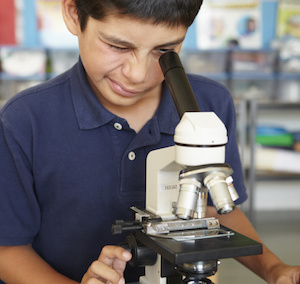

<p><img class=" alignright size-full wp-image-1510" src="http://schoolnewsnz.fastrackdev.com/wp-content/uploads/2015/05/SND15-wk4-Science_funding.jpg" alt="SND15-wk4-Science funding" style="margin: 5px; float: right;" width="300" height="284" />More primary schools than ever before will be able to dive deeper into the world of science and nature this year thanks to the Bayer Primary School Science Fund. <!--more--> </p>
<p>The fund, sponsored by Bayer New Zealand and administrated by the Royal Society of New Zealand, received almost 100 applications from primary schools around the country.</p>
<p>Twenty-six schools were selected and will receive grants of up to $2000 to help enhance an existing or begin a new environmental science education programme.</p>
<p>Projects range from improving water and soil quality to planting gardens, creating worm farms and bee keeping.</p>
<p>Much of the Bayer Primary School Funding will be spent on equipment such as water testing kits, microscopes, weather stations, seedlings, compost bins and binoculars.</p>
<p>Bayer New Zealand managing director Holger Detje says he is thrilled that more schools will receive funding.</p>
<p>&#8220;Every year primary schools nationwide send in fantastic applications so it&#8217;s great that now more children can benefit from the fund.</p>
<p>&#8220;These projects allow children to learn about science and the environment, but they are also an investment into our environment as a whole.&#8221;</p>
<p>Royal Society of New Zealand <a class="wpil_keyword_link" href="https://www.schoolnews.co.nz/2015/10/new-chief-executive-for-education-council/" title="chief executive" data-wpil-keyword-link="linked" target="_blank">chief executive</a> Andrew Cleland says the organisation is committed to advancing quality primary science education by encouraging primary students and their teachers to participate in authentic science activities.</p>
<p>&#8220;Through hands-on scientific investigations, these young people will learn more about their local environment and how to improve it. They will gain an appreciation of the relevance of science and technology to their daily life and learn the skills of critical thinking that they can apply widely.</p>
<p>&#8220;We are pleased this fund is assisting more schools to deliver these valuable programmes, which are contributing to better-informed, environmentally-aware communities.&#8221;<br />The 26 projects aim to encourage students to think about how science is a part of everyday life.</p></p>

EXCLUSIVE: Teachers used to be paid two to three times more than minimum wage workers,…
After an “overwhelming” vote to reject the latest Government offer, secondary school teachers will begin…
Second-language learning should be compulsory, says a new report from a forum bringing together academics,…
A new entitlement aimed to improve access to learning support coordinators for schools with students…
Educators have raised questions about the Ministry of Education’s new secondary school subjects, set to…
Professional learning and development (PLD) for teachers needs to be higher impact for teachers and…
This website uses cookies.